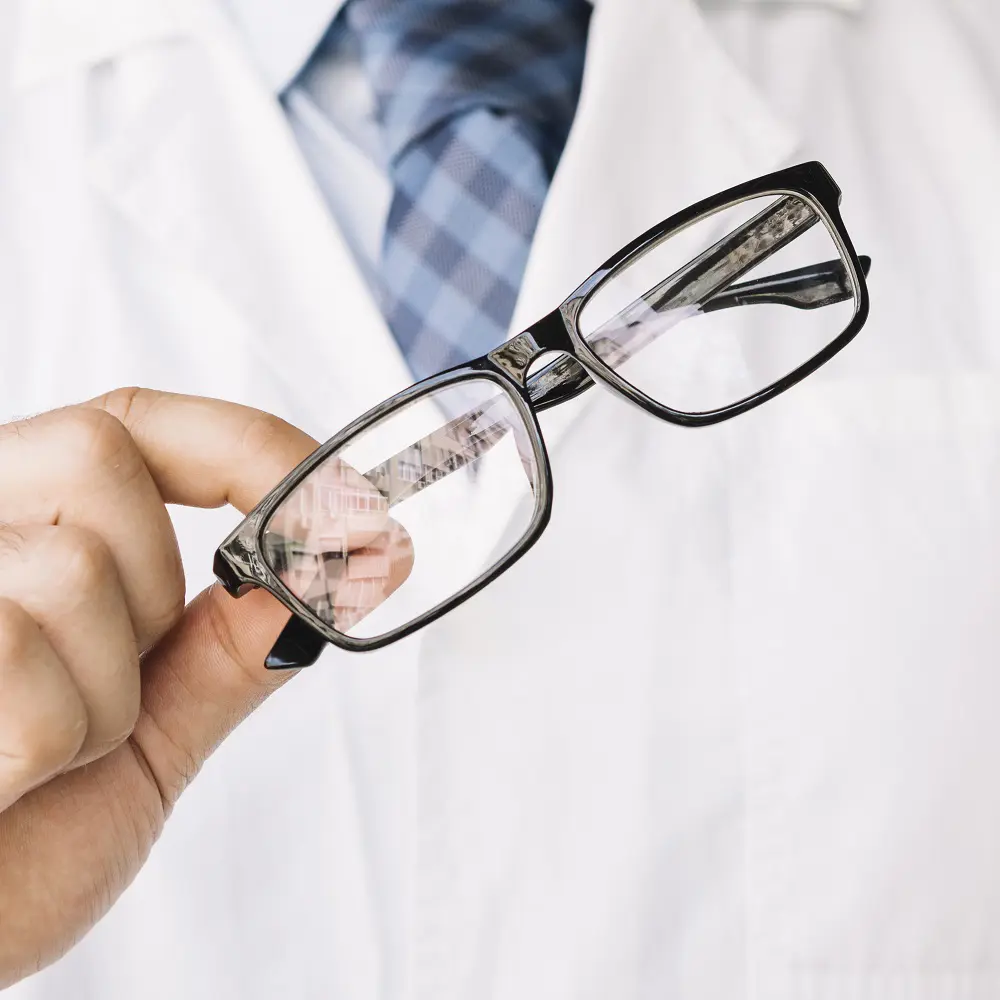We all depend on our eyes so much every day and it's very common to overlook symptoms when they are mild. But always keep in mind that little inconveniences can add up to bigger problems in the long run. The majority of problems and symptoms associated with the eyes can even indicate that you require a new prescription.
Below, we have listed five common signs you need to consider and change your eyeglass prescription. However, keep in mind that although these may frequently be indicators of a vision change, they may also point to an underlying ocular disease.
Therefore, your first course of action should always be to consult an eye doctor if you are suffering any of these symptoms related to your eyes.
1. Blurred Vision
Blurry vision is the most common way to notice that something is wrong with your vision. You may not notice changes in your vision at first since they are not always consistent. It is also rather typical for your eyes to have many prescriptions.
Over time, your left eye's prescription may have changed while your right eye's prescription may have remained the same. This shift may be fast and confusing, or it may be mild and difficult to notice.
Your eye doctor will perform tests during your yearly exam to make sure your prescription takes into account the changes in your eyes since your last appointment. Additionally, blurriness may indicate other medical disorders that need to be treated, such as cataracts.
So, if you have blurry vision it's time to get your eye prescription updated.
2. Frequent Headaches
Another indicator that it's time to change your prescription for glasses is headaches. Your brain tries to adjust for the changes in your vision as soon as it detects that your eyes are changing. Your brain starts to overwork itself, which leads to stress and frequent discomfort.
Your brain will eventually wear out from a long struggle to support your eyes. You'll start to get headaches regularly as a sign that your prescription isn't effectively correcting your vision.
You can give your eyes and brain some much-needed break by resting them or taking pain medication, but if your prescription isn't updated, the pain and tiredness will probably return. It could be time to adjust your eye prescription if you're getting headaches more frequently.
3. Double vision
Another name for double vision is diplopia, this issue usually suggests that the eyes are not aligned properly. Double vision on a regular basis can have damaging effects. Your eye doctor may identify what is causing your problems by doing a check-up thoroughly. Double vision may also lead to keratoconus, a more dangerous eye issue, or strabismus, which is crossed eyes.
If your eye doctor diagnoses you with crossed eyes, the most likely course of treatment will be a prescription for new glasses that have higher prismatic power than the ones you currently wear.
Prismatic power can prevent you from seeing double and assist with eye alignment problems.
4. Squinting
Squinting every now and then is not good even though it could be an easy technique to prevent intense, bright light or unclear vision. If you find yourself squinting at your computer screen, smartphone, or other digital gadgets, you can have computer vision syndrome, also known as digital eye strain.
Before realizing that squinting may almost be the result of an outdated eyeglass prescription, most individuals mistakenly believe it to be caused by hunger, dehydration, or improper sleep patterns. So, you can consider using computer glasses; these can help you focus on your intermediate vision and are made to block blue light, which may enhance your comfort level.
When you wear computer glasses, the clarity of the objects on your screen should be clearer. If you are still experiencing problems, consider applying the 20-20-20 rule: Look at something 20 feet away for 20 seconds once every 20 minutes.
5. Worn Out Glasses
Last but not least, worn-out glasses are also a sign that it's time to change your eyeglass prescription. If you are a regular eyeglasses owner, you may believe that scratches, bends, and scuffs are an unavoidable part of owning a pair of spectacles, but this could be impacting your vision in unexpected ways.
In order to guarantee that you have the clearest vision possible, it is essential to buy the next pair of glasses that are resistant to glare, scratches, and smudges. Wearing dirty glasses might strain your eyes.
Furthermore, the protective coating that comes on your lenses could wear away if you're the type who constantly cleans your glasses. This can cause a stain-like film to remain on your lens, making it blurry. So, it is extremely important to change your eyeglass prescription if you are wearing worn-out glasses.
Importance Of Regular Eye Exam
The eyes are among the most important and sensitive organs of the human body. Despite knowing this, taking good care of our eyes is often ignored which results in many people needing glasses and some even losing their sight.
Most people may think that eye testing is only for checking the power of the glasses we need. But there is so much more to doing a full eye examination than just getting a new pair of prescription glasses. Below we have listed a few reasons why doing regular eye exams is important:
- Early eye check-up or visual acuity screening helps to identify when one will need to start using prescription glasses.
- Eye check-up also indicates the correction that is needed periodically for improvement or deterioration of visual function over the years.
- In addition to your unclear vision, the doctors will also check for any other ocular symptoms.
According to the reports, more than 75 percent of blindness are preventable if identified in time. So, it is recommended to have your eye examination regularly and never overlook even small symptoms that are related to your eyes.
Recommended Frequency of Eye Check-Ups
How often one needs a visual acuity test or a comprehensive eye examination is solely based on the current eye health of the patient. However, in general, children need less frequent comprehensive eye tests as compared to adults, who should be checked at least once every two years for their overall ocular function. Doctors have highly recommended more frequent eye check-ups during old age.
Moreover, those whose job is heavily demanding in terms of visual engagement, are also highly advised to get their eyes fully checked more often than once in two years.
Content Source

